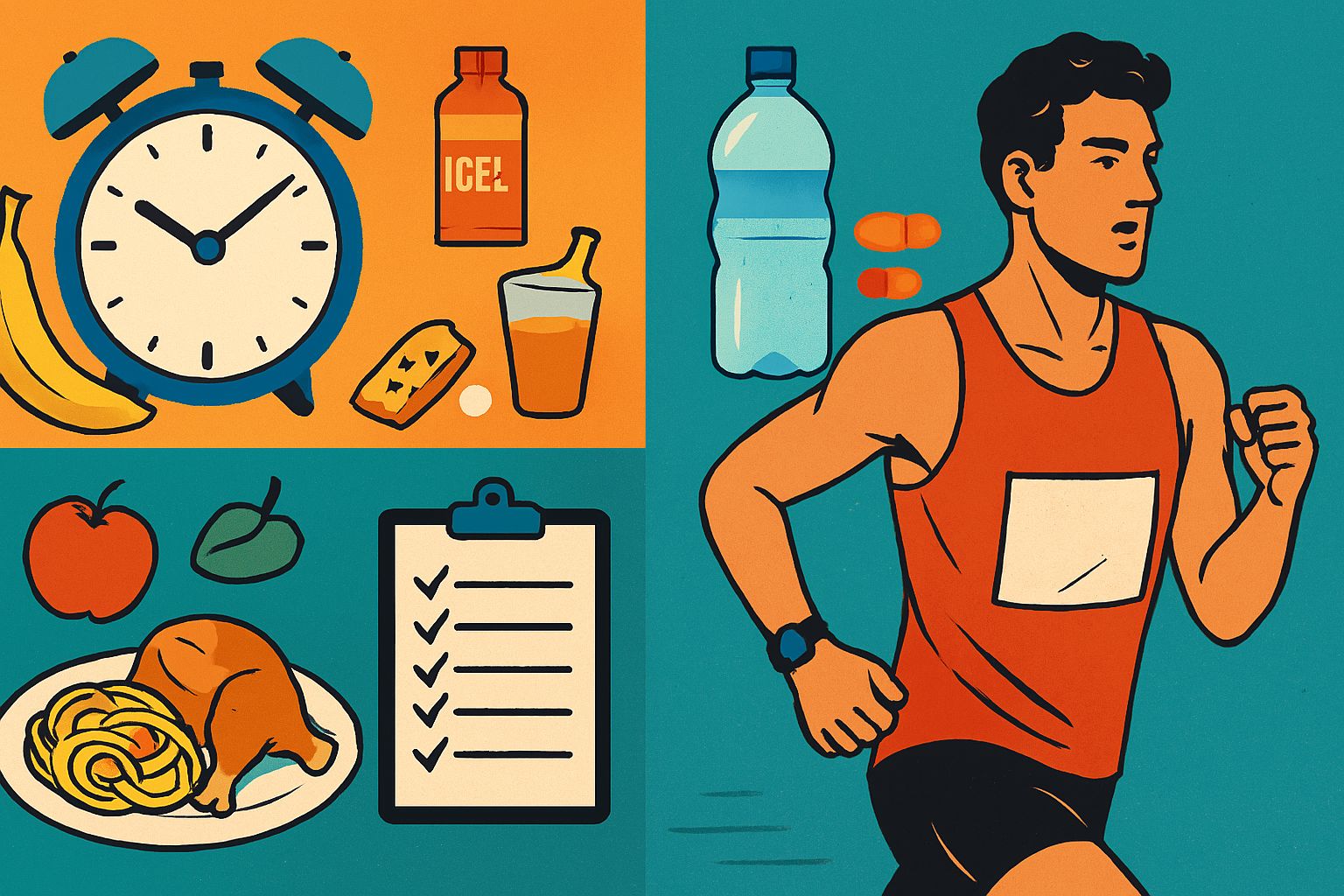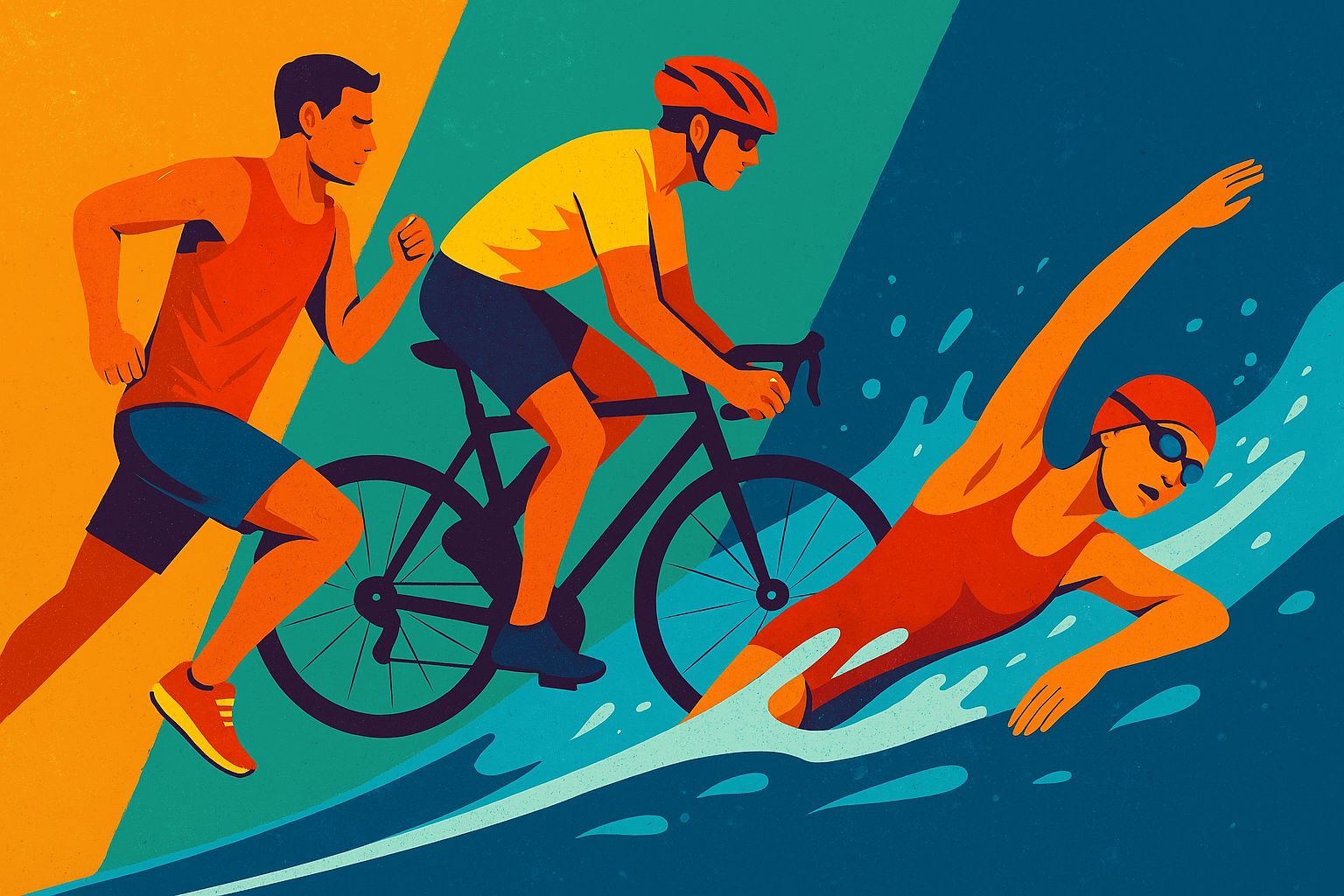Race Day Nutrition & Hydration Planner
Race day is the culmination of months of hard training, and getting your nutrition and hydration right is essential to performing your best. Whether you’re running a marathon, participating in a triathlon, or cycling in a long-distance race, understanding how to fuel your body before, during, and after the event can make all the difference in your performance. Proper nutrition and hydration will help you maintain energy, stay hydrated, and recover faster, ensuring that you can tackle the challenges of race day with confidence.
In this article, we’ll explore the importance of race day nutrition and hydration, how to calculate your needs, and a practical planner to ensure you perform at your best. A well-thought-out plan will help you avoid common pitfalls like dehydration, energy crashes, and fatigue, so you can focus on the race itself.
Race Day Nutrition & Hydration Planner
What Is Race Day Nutrition & Hydration?
Race day nutrition and hydration refers to the food and drinks you consume before, during, and after a race to optimize performance, maintain energy levels, and accelerate recovery. It’s about giving your body the right fuel at the right times to keep you operating at peak capacity.
The main focus of race day nutrition is to maintain glycogen levels, prevent dehydration, and replace lost electrolytes. A good hydration strategy ensures you avoid cramping and fatigue, while fueling properly allows you to sustain energy and avoid hitting the wall, especially during long events.
How to Calculate Your Nutrition & Hydration Needs
Your race day nutrition and hydration plan should be personalized based on your body, the race conditions, and the type of event. However, there are basic guidelines to follow to ensure that you’re properly fueled and hydrated.
Hydration: Aim to drink between 400 to 800 milliliters of fluids per hour during the race. Adjust based on temperature and humidity. Keep in mind that drinking water alone might not be enough; you need electrolytes to replenish sodium, potassium, and magnesium, which are lost through sweat.
Carbohydrates: Consume 30 to 60 grams of carbohydrates per hour during races lasting longer than one hour. For endurance races lasting more than two hours, you may need 90 grams of carbohydrates per hour. Gels, chews, and drinks are convenient ways to get these carbohydrates.
Protein and Fats: These are not a priority during shorter races but can help with longer events. Protein helps prevent muscle breakdown, and fats provide additional energy once glycogen is depleted.
Pre-Race Nutrition and Hydration
What you eat and drink before race day is just as important as your race-day fueling. The right pre-race meal will ensure your body has enough stored energy to perform at its best.
The Night Before: Focus on a carbohydrate-rich dinner that provides energy for the next day. Pasta with lean protein, like chicken or fish, is a good option. Avoid high-fat, high-fiber meals, which may cause digestive discomfort. Drink plenty of water to hydrate, and consider an electrolyte-rich drink to prepare for the race.
Race Morning: Eat a light, easily digestible breakfast about 2 to 3 hours before the race starts. A carbohydrate-based meal, such as oatmeal with fruit, a bagel with peanut butter, or a banana with toast, is ideal. Avoid greasy or heavy foods. Continue hydrating with water or a sports drink, aiming for 400 to 600 milliliters before the race starts.
Fueling During the Race
During the race, maintaining a steady supply of energy and staying hydrated is crucial to avoid hitting the wall or running out of fuel. Here’s how to keep yourself fueled and hydrated throughout the event.
Hydration: Aim to drink fluids every 15 to 20 minutes. Depending on the race length and conditions, you should drink water or sports drinks that replace both fluids and electrolytes. If you’re sweating heavily, sports drinks are a better option than water alone.
Carbohydrates: After the first hour, start fueling with carbohydrates. Energy gels, chews, and drinks are fast-digesting and effective. For races lasting longer than an hour, you should aim for 30-60 grams of carbohydrates per hour. In longer races, you might need up to 90 grams per hour.
Protein and Fat: For endurance events lasting more than two hours, you may want to include small amounts of protein to prevent muscle breakdown. This can come in the form of protein bars, shakes, or gels. Keep fat intake minimal during the race to avoid stomach upset.
Post-Race Recovery
Once you cross the finish line, your body will be depleted of glycogen and fluids. It’s essential to replenish your body with the right nutrients and fluids to speed up recovery and prevent muscle soreness.
Recovery Nutrition: Within 30 minutes after the race, consume a combination of carbohydrates and protein to replenish glycogen stores and repair muscle tissue. A recovery drink or snack containing 20 to 30 grams of protein and about 1.5 to 2 times that amount in carbohydrates is ideal.
Hydration: Rehydrate with water or a sports drink. Aim to drink 500 to 700 milliliters of fluid within the first hour post-race. If the race was particularly hot or humid, continue drinking fluids throughout the day to restore your hydration levels.
Sample Race Day Nutrition & Hydration Plan
To ensure that you’re fully prepared for race day, here’s a sample race day nutrition and hydration plan based on common guidelines. Tailor it to your personal needs and the demands of your specific event.
The Night Before the Race: A carbohydrate-rich dinner, such as pasta with a lean protein (chicken or turkey), and a side of vegetables. Drink plenty of water and consider an electrolyte drink.
Pre-Race Breakfast: A light breakfast 2-3 hours before the race, such as oatmeal with fruit or a bagel with peanut butter. Drink 400-600 milliliters of water or a sports drink.
During the Race:
Hydrate every 15-20 minutes with water or a sports drink, aiming for 400 to 800 milliliters of fluid per hour.
After 30 minutes, begin consuming carbohydrates in the form of gels, chews, or drinks (30-60 grams of carbs per hour).
For long races (more than two hours), you can add small amounts of protein to your fueling plan.
Post-Race Recovery: Within 30 minutes, consume a recovery drink or snack with carbohydrates and protein to replenish glycogen and repair muscle tissue. Continue hydrating with water or a sports drink.
Common Mistakes to Avoid
Race day is stressful, and sometimes even the most prepared athletes make mistakes with nutrition and hydration. Avoid these common pitfalls to ensure optimal performance:
Dehydration: Many athletes underestimate their fluid needs. Ensure you hydrate consistently throughout the race, especially in hot conditions.
Overloading on Protein: While protein is essential for recovery, too much during the race can cause digestive discomfort. Stick to carbohydrates during the event, and save protein for post-race recovery.
Skipping Fueling: Skipping carbohydrate intake during longer races can lead to energy crashes and poor performance. Be proactive with fueling, even if you don’t feel hungry or thirsty.
Experimenting with New Foods or Drinks: Race day is not the time to try new foods, gels, or hydration products. Stick with what you’ve practiced during your training to avoid digestive issues.
Racing To The Finish
Race day nutrition and hydration can make or break your performance. With proper planning, you can ensure that your body is well-fueled, hydrated, and ready to take on the challenge. By understanding your personal needs and following a structured fueling plan before, during, and after the race, you’ll be setting yourself up for success. Fueling your body the right way will help you avoid energy crashes, dehydration, and muscle fatigue, allowing you to race at your best and finish strong. Proper nutrition and hydration aren’t just about surviving race day—they’re about thriving and reaching your goals with confidence.




